Hyundai IONIQ 5 vs Peugeot 308 – Which model is better for everyday use?
Compare performance, boot capacity, efficiency and price at a glance.
Find out which car is the better choice for you – Hyundai IONIQ 5 or Peugeot 308?
Costs and Efficiency: Price and efficiency are key factors when choosing a car – and this is often where the real differences emerge.
Peugeot 308 has a noticeable advantage in terms of price – it starts at 29200 £, while the Hyundai IONIQ 5 costs 38500 £. That’s a price difference of around 9248 £.
In terms of energy consumption, the advantage goes to the Peugeot 308: with 15.20 kWh per 100 km, it’s slight more efficient than the Hyundai IONIQ 5 with 15.60 kWh. That’s a difference of about 0.40 kWh.
As for range, the Hyundai IONIQ 5 performs clearly perceptible better – achieving up to 570 km, about 151 km more than the Peugeot 308.
Engine and Performance: Power, torque and acceleration say a lot about how a car feels on the road. This is where you see which model delivers more driving dynamics.
When it comes to engine power, the Hyundai IONIQ 5 has a clearly edge – offering 650 HP compared to 195 HP. That’s roughly 455 HP more horsepower.
In acceleration from 0 to 100 km/h, the Hyundai IONIQ 5 is clearly quicker – completing the sprint in 3.50 s, while the Peugeot 308 takes 7.60 s. That’s about 4.10 s faster.
In terms of top speed, the Hyundai IONIQ 5 performs slightly better – reaching 260 km/h, while the Peugeot 308 tops out at 225 km/h. The difference is around 35 km/h.
There’s also a difference in torque: Hyundai IONIQ 5 pulls significantly stronger with 770 Nm compared to 300 Nm. That’s about 470 Nm difference.
Space and Everyday Use: Beyond pure performance, interior space and usability matter most in daily life. This is where you see which car is more practical and versatile.
Both vehicles offer seating for 5 people.
In curb weight, Peugeot 308 is distinct lighter – 1436 kg compared to 1955 kg. The difference is around 519 kg.
In terms of boot space, the Hyundai IONIQ 5 offers clearly perceptible more room – 520 L compared to 412 L. That’s a difference of about 108 L.
In maximum load capacity, the Hyundai IONIQ 5 performs slightly better – up to 1580 L, which is about 257 L more than the Peugeot 308.
When it comes to payload, Hyundai IONIQ 5 barely noticeable takes the win – 530 kg compared to 510 kg. That’s a difference of about 20 kg.
Who wins the race?
The Hyundai IONIQ 5 proves to be dominates this comparison and therefore becomes our DriveDuel Champion!
Hyundai IONIQ 5 is the better all-rounder in this comparison.
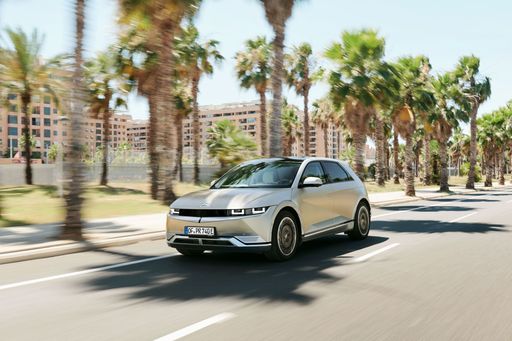
Hyundai IONIQ 5
Hyundai IONIQ 5
The Hyundai IONIQ 5 showcases a bold and futuristic design that captures attention with its striking facade and sharp lines. This electric vehicle offers an impressive blend of performance and efficiency, making it a compelling choice for environmentally conscious drivers. Inside, the spacious and tech-forward interior provides a comfortable and engaging driving experience for both driver and passengers.
details @ hyundai.news
@ hyundai.news
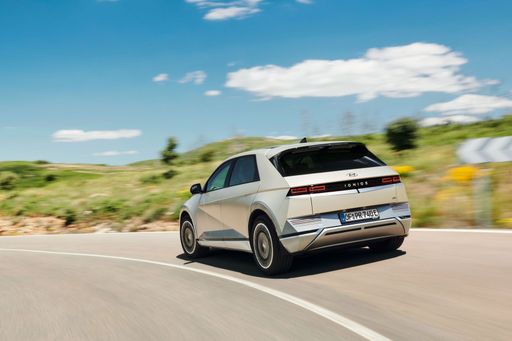 @ hyundai.news
@ hyundai.news
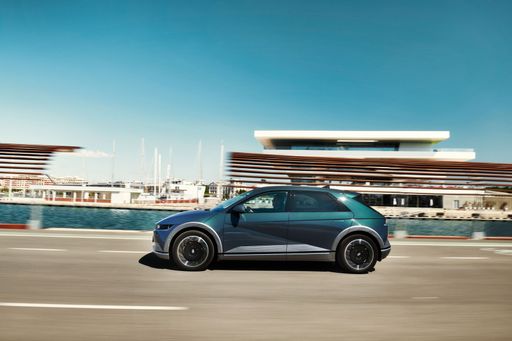 @ hyundai.news
@ hyundai.news
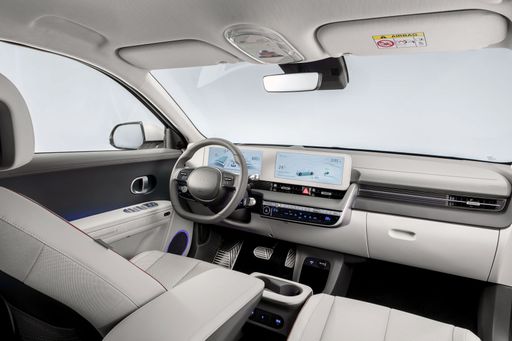 @ hyundai.news
@ hyundai.news
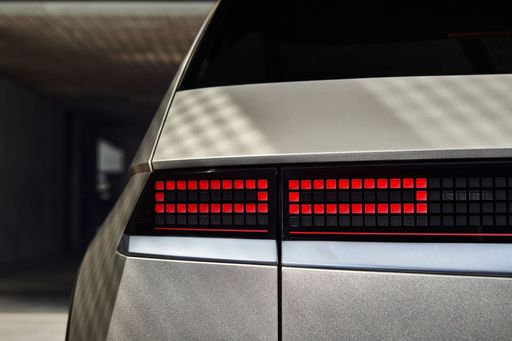 @ hyundai.news
@ hyundai.news
Peugeot 308
The Peugeot 308 presents a refined blend of style and sophistication, making it a compelling option for anyone in search of a dynamic yet practical vehicle. Its sleek design is complemented by a thoughtfully crafted interior that ensures both driver and passengers travel in comfort and elegance. Moreover, the 308 offers a responsive driving experience, combining agility with a sense of security on the road.
details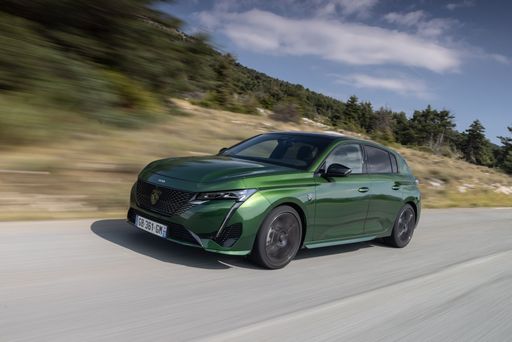 @ media.stellantis.com
@ media.stellantis.com
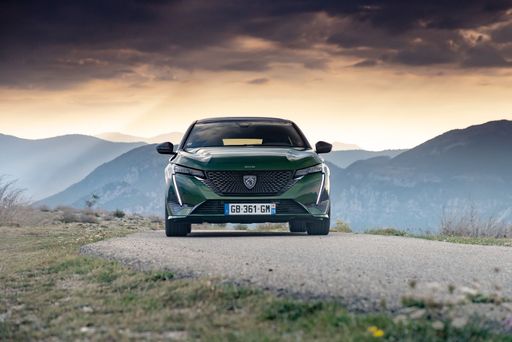 @ media.stellantis.com
@ media.stellantis.com
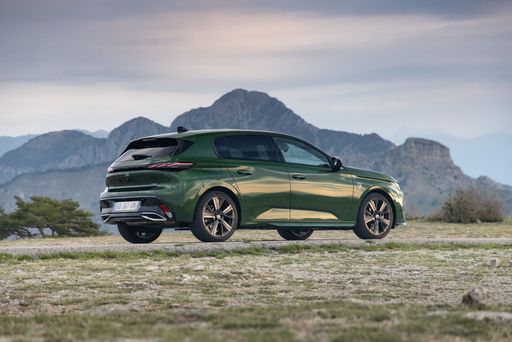 @ media.stellantis.com
@ media.stellantis.com
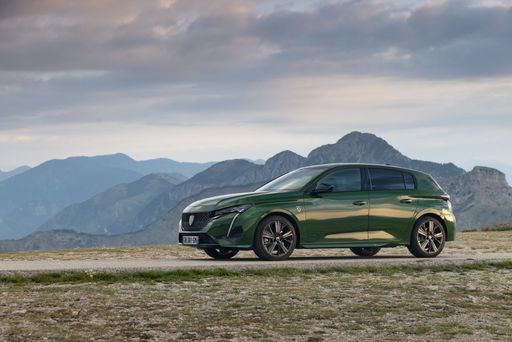 @ media.stellantis.com
@ media.stellantis.com
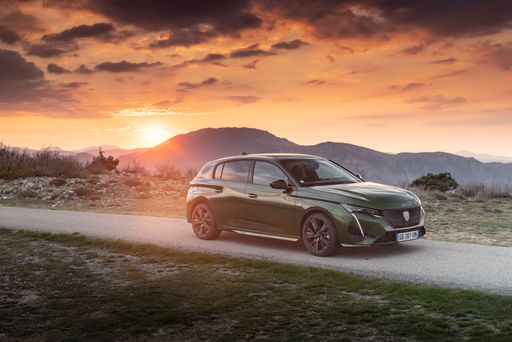 @ media.stellantis.com
@ media.stellantis.com
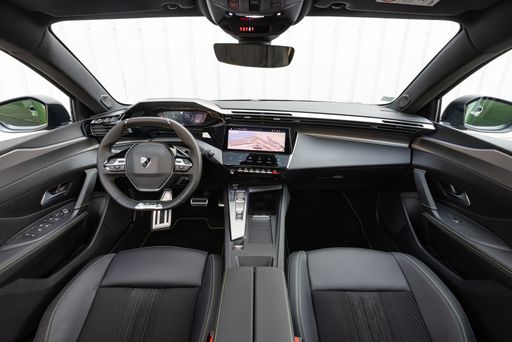 @ media.stellantis.com
@ media.stellantis.com

|

|
|
|
|
Costs and Consumption |
|
|---|---|
|
Price
38500 - 64200 £
|
Price
29200 - 41800 £
|
|
Consumption L/100km
-
|
Consumption L/100km
0.8 - 5.1 L
|
|
Consumption kWh/100km
15.6 - 21.2 kWh
|
Consumption kWh/100km
15.20 kWh
|
|
Electric Range
440 - 570 km
|
Electric Range
78 - 419 km
|
|
Battery Capacity
63 - 84 kWh
|
Battery Capacity
51 kWh
|
|
co2
0 g/km
|
co2
0 - 133 g/km
|
|
Fuel tank capacity
-
|
Fuel tank capacity
42 - 53 L
|
Dimensions and Body |
|
|---|---|
|
Body Type
SUV
|
Body Type
Hatchback
|
|
Seats
5
|
Seats
5
|
|
Doors
5
|
Doors
5
|
|
Curb weight
1955 - 2275 kg
|
Curb weight
1436 - 1759 kg
|
|
Trunk capacity
480 - 520 L
|
Trunk capacity
314 - 412 L
|
|
Length
4655 - 4715 mm
|
Length
4367 mm
|
|
Width
1890 - 1940 mm
|
Width
1852 mm
|
|
Height
1585 - 1605 mm
|
Height
1441 mm
|
|
Max trunk capacity
1540 - 1580 L
|
Max trunk capacity
1258 - 1323 L
|
|
Payload
385 - 530 kg
|
Payload
431 - 510 kg
|
Engine and Performance |
|
|---|---|
|
Engine Type
Electric
|
Engine Type
Diesel, Electric, Petrol MHEV, Plugin Hybrid
|
|
Transmission
Automatic
|
Transmission
Automatic
|
|
Transmission Detail
Reduction Gearbox
|
Transmission Detail
Automatic Gearbox, Reduction Gearbox, Dual-Clutch Automatic
|
|
Drive Type
Rear-Wheel Drive, All-Wheel Drive
|
Drive Type
Front-Wheel Drive
|
|
Power HP
170 - 650 HP
|
Power HP
130 - 195 HP
|
|
Acceleration 0-100km/h
3.5 - 8.5 s
|
Acceleration 0-100km/h
7.6 - 10.6 s
|
|
Max Speed
185 - 260 km/h
|
Max Speed
170 - 225 km/h
|
|
Torque
350 - 770 Nm
|
Torque
230 - 300 Nm
|
|
Number of Cylinders
-
|
Number of Cylinders
3 - 4
|
|
Power kW
125 - 478 kW
|
Power kW
96 - 144 kW
|
|
Engine capacity
-
|
Engine capacity
1199 - 1598 cm3
|
General |
|
|---|---|
|
Model Year
2024
|
Model Year
2023 - 2025
|
|
CO2 Efficiency Class
A
|
CO2 Efficiency Class
D, A, C, B
|
|
Brand
Hyundai
|
Brand
Peugeot
|
What drive types are available for the Hyundai IONIQ 5?
The Hyundai IONIQ 5 is available as Rear-Wheel Drive or All-Wheel Drive.
The prices and data displayed are estimates based on German list prices and may vary by country. This information is not legally binding.
